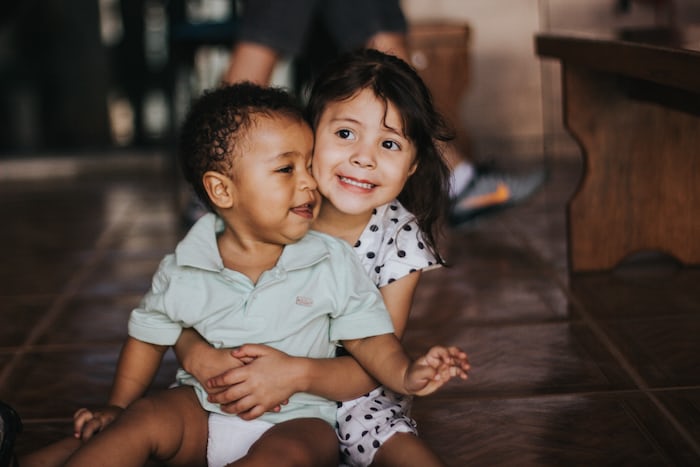If there’s any book I adore for how truthful it is in relaying stories of child sexual abuse in Nigerian women, then Daughters Who Walk This Path by Yejide Kilanko would take the award.
Set in military and post military Nigeria, it is a book that explores how absentee parenting and expectations of silence from female children especially, can lead to the continuation of child sexual abuse.
In one of the most chilling scenes from the novel, I remember how Bros T who had been raping Morayo, called her into his room to get him something whilst Morayo’s mother was there. Morayo of course knew what and why he was calling her and so mumbled that he should get it for himself. Her mother shouted at her for being disrespectful to her older cousin and promptly instructed her to go to his room.
Upon getting there, Bros T pushed Morayo onto the bed and raped her again.
I am someone who believes in treating people with respect regardless of age. However, I have to admit that Nigerians and Africans generally have a warped mentality of what it means to be a respectful person.
Not just that, we also have a very stunted idea of who should receive respect such that women and children are very enough seen as those who deserve to be disrespected and dehumanised.
As illustrated in the example from Daughters Who Walk This Path, Nigerians and Africans generally have indirectly used the idea of respect and unquestioning obedience to ensure that children endure sexual trauma.
It is the idea that one must never question their elders especially in a negative way, that sometimes makes it hard for child sexual abuse victims to report the issue to the other adults.
Even where help is available, female children are often raised to be meek, ‘sweet’ and in desire for likability, such that they worry how their actions would impact their ability to be in the good books of the elders in their lives.
They worry that should they report what is happening, they would no longer be liked and their families may face not being liked because they reported.
But how do we move on from a culture that explicitly states that a child that “talks back” at elders even when the elders are wrong is a terrible child? How do we reconcile the popularly held belief that Nigerians love children with the fact that a lot of parents believe beating children is a necessary part of discipline? How again, do we marry the irony that is praying for the ‘fruit of the womb’, but never protecting that fruit from the molestation of an uncle because a family name must be protected?
To further understand how the culture of expecting obedience in children fuels the continuation of child sexual assault, I spoke to three women.
Speaking with Khaleelah*, a writer and filmmaker, she explained that expectations of obedience made it hard for her when she experienced sexual molestation at the hands of her landlord’s son.
In her words: “Between the ages of three and six, I experienced molestation and sexual abuse at the hands of ny landlord’s son on several occasions. My parents never knew until I turned seventeen and it came to light when somebody else in our own house was raped by someone and my father began asking questions.
It usually happened when I was a toddler because my mum used to drop us off at the landlord’s house after school because there were increased rates of kidnapping then in the neighbourhood. He would call me to his room and touch me and he used to say that if I ever told anyone he would tell them I came to the room because I was playing.”
She went on to say: “I never told anyone until he moved out and I found it difficult to tell because I believed I’ll be called a liar and my reputation as a good child will be tainted. I assumed being a good child meant that you obey people and I was always obeying and the abuse lasted that long because I thought I had to obey my elders.
The culture of obedience exposes children to harassment because you are obeying a command from the perpetrator. It’s bad and it usually happens with people that are the closest to us because you know the impact of them reporting you for not obeying in a situation like this means that you’re in trouble and no one wants to be in trouble.
To solve this, we need to teach children that when people do things they aren’t comfortable with [they should speak up] and we should also teach them that their privacy and private parts shouldn’t be harmed or touched. Toddlers should be taught too what harassment is and there should be sex education for them as well.
Once a child is ripe for daycare, let that child start knowing their private parts and the boundaries that come with it. Parents should also not raise their kids in fear such that they find it hard to talk to them.”
For Chivie, a writer, she tells me that observing how women are silenced can also prevent children from speaking up.
To quote her: “Apart from the violence and trauma of sexual assault, a lot of girls can stay silent when they’re not protected or sympathised with by the women around them.
If you’re hurt by men, and the women around either dismiss you or look away, then you see it as a norm. You see it as the price you must pay as a woman for existing around men so you stay silent.”
Speaking with Loni*, she tells me that speaking up sometimes may mean that you lose the favour of family members.
In her words: “So apart from the long years of people in my family not doing much about several attempts of sexual assault that I’ve been a victim of, my elder sister’s boyfriend who she brought to live with us (myself and my younger sister) sexually assaulted my younger sister.
Everyone kept quiet about it and when I confronted all of them, the issue turned from the sexual assault to me “being rude to my elders”.
It was a very very serious issue and it completely ruined my relationship with my family. Till today I don’t speak with my elder sister (even though she and her boyfriend still stay in the house).
My mum told me and my younger sister to kneel and beg the so-called sister for being rude to her (rude = telling her she picked her boyfriend over her sister).”
She went on to say: “Because my mum keeps sacrificing so much for me, I feel hugely indebted to her so 60% when she wants me to suck up to the elder sister, I do it.
It’s a very long, complicated issue but the point is that the sexual assault issue was completely underlooked. In fact, the reason I spiralled was because they said they were going to take my younger sister to swear that the man touched her. I just flipped. Maybe it came as a surprise to them because I’m the “gentle daughter”.
When it happened, different family members called to try to scold me for being rude to my elder
WITHOUT addressing the issue of the sexual assault.”
Loni concluded by saying: “To correct the issue of fear, parents/guardians/people should do more to create a safe space for victims to express their pain.
I understood how hard it was for the lady (I don’t like her to call her my sister) to be confronted with the fact that her boyfriend is a useless sexual abuser. That was why I gave her lots of grace and treated her kindly as I informed her of what my younger sister said he did to her but she is literally so scared of being alone. That’s why she keeps hanging on to a hobo who sexually assaulted her family and keeps ripping her off.
Anyways the issue (which is still ongoing and keeps dealing with my mental and financial health) has taught me not to be afraid of standing up to anyone.
Elder, near-deceased, younger, ancient, I really don’t give a fuck about who you are, the kind of relationship we share, what you’ve done for me before, etc, I’ll open my mouth and call you out.”
If we do not encourage children to express discomfort without the fear of punishment or being seen as rude, we shall continue to have cases of children being afraid to properly articulate incidences of sexual assault and molestation.
- *Name changed to protect identity.

Angel Nduka-Nwosu is a writer, journalist and editor. She moonlights occasionally as a podcaster on As Angel Was Sayin’. Catch her on all socials @asangelwassayin.

